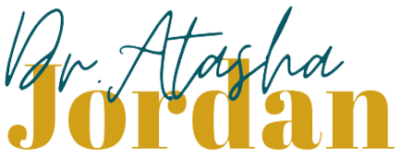
While on rotations, I often take advantage of the opportunity to eat outside. One day last month, when it was finally nice out, I sat on a picnic bench, under the beautiful tree pictured below, to eat my lunch (there’s this bomb food truck outside of the Philadelphia Veterans Affairs Medical Center (VAMC) with $4-$6 lunch sandwiches! The frugal queen in me rejoices…but I digress).

During this particular lunch break, I thought back to a veteran (I’ll call him Mr. X) I had seen earlier that day. Mr. X said,
“I used to be too embarrassed to say I don’t have no food at home, but now I put all my cards on the table so I can get all the help available to me”
This simple statement was profound to me in many ways. First, as I ate my meatball sub, I thought about the fact that Mr. X – a man who served overseas for our country – did not have the simple necessity of food at home. Through my various months at the VAMC, a sad reality I’ve come to learn is that life for our veterans can be incredibly difficult after their years of service. Untreated post-traumatic stress disorder (PTSD) caused by stressors such as combat experiences or military sexual trauma can make re-entry to civilian life difficult. Drug and alcohol dependence are other post-military stressors that make it hard for veterans to sustain employment or to create the social support system that they desire. Luckily, the military has services in place to provide disability pension as well as the mental health services that these veterans require. The existence of these financial and medical services, however, leads me to another reflection on the above quote.
Mr. X’s lack of food at home highlighted an important aspect of drug addiction that is often overlooked. A key reason Mr. X didn’t have enough food to eat was not because of a lack of funds, but rather due to the misallocation of his monthly pension to feeding his addition. Mr. X suffered from years of opiate abuse, a vice on which he sometimes spent hundreds of dollars per day. His addiction left little to no money for food or rent (which he was several months behind on). During this hospital admission, he opened up to the treatment team for the first time about the financial difficulties he faced, with the hopes that he could be connected with the appropriate social work resources, in addition to attending inpatient opiate use rehabilitation. Because Mr. X relinquished his pride, the social worker was able to help him find veterans’ housing for after his stay in rehab.
Finally, this veteran’s statement was a reminder to me that pride is often more hurtful than helpful. Mr. X said that he was putting all of his cards on the table so that, in return, he could get help. Though we might not face the exact same challenges as Mr. X, we can probably think of different points in our lives where we let our pride get the best of us. For me, when I was in college, I struggled in an introductory genetics course (LS1b, for the Harvard folks reading!). Instead of reaching out to TFs, professors, or my classmates for help, I stubbornly stuck to study methods that clearly did not work. I ended up with a C+ in the course. This grade, the worst I’ve ever received, was a wakeup call for me. As a premed wanting to get into medical school, I’d now dug myself into a hole and spent the next three years of college working my butt off to recover my GPA. I sometimes think that this grade was a blessing in disguise because from there on in my academic career, I have been a strong advocate of seeking help early and often. Similar to Mr. X, I learned to put my intellectual pride aside and accept help from those around me. My hope for you and for myself is that we continually allow ourselves to be vulnerable by dismantling the excess pride that stands in the way of our success.
Here’s to putting all of our cards on the table!
-Atasha Jordan, MD (to be)
P.S. For many, pride is something that has become second nature. We are proud of the achievements that we have earned and often forget about the people who helped us to get there. I’d argue that excess pride is something to recover from. Check out this post that covers the importance of leaning on support systems to make key changes in your life.
